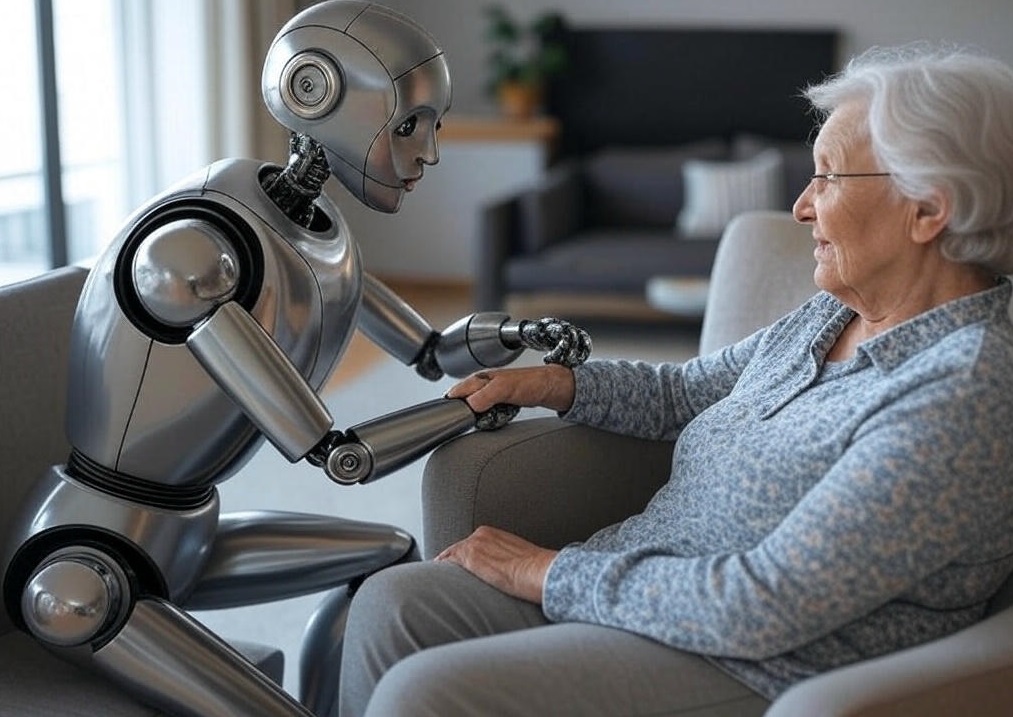
The elderly care sector is increasingly adopting artificial intelligence (AI) to assist caregivers and improve the quality of life for elderly people. From sensors monitoring patients overnight to apps that detect pain, AI is playing a growing role in social care. However, experts warn that AI can only be part of the solution, and it cannot replace human care entirely.
AI-Powered Monitoring: Real-World Examples
One notable example of AI in action is AllyCares, which uses sensors to monitor elderly people in care homes. These sensors detect any unusual events, such as falls, and send audio recordings to caregivers for further action. This allows caregivers to reduce the number of nightly checks, helping residents sleep better while also detecting issues like infections or falls early. Christine Herbert, whose 99-year-old mother is monitored with this technology, explained how the system gave her confidence that her mother was being cared for without unnecessary disturbances during the night.
Pain Detection with AI: The Painchek App
At Elmbrook Court care home in Oxfordshire, AI is used to detect if residents are in pain. The Painchek app scans a resident’s face, analyzes pain indicators, and provides an instant percentage score of the pain level, allowing caregivers to administer appropriate pain relief. This technology has been especially useful for non-verbal residents and has provided families with reassurance about their loved ones’ well-being.
AI Robots for Training Carers: Digital Twins of Patients
At the University of Oxford, researchers are developing a robot that can simulate human pain and respond to touch, helping train occupational therapy students. The robot acts as a digital twin of a human patient, allowing students to practice and learn without the need for real-life patients. This approach could provide valuable training for healthcare professionals, especially as the aging population increases.
Risks and Ethical Concerns with AI in Care
While AI can enhance care services, there are concerns about over-reliance on technology. Dr. Caroline Green from the University of Oxford cautions that AI can address some aspects of the caregiving shortage but cannot replace the human touch and empathy that is essential in caregiving. Issues such as bias in AI systems, data privacy, and the ethical implications of AI replacing human interaction must be carefully addressed. It is crucial to maintain a balanced approach when implementing AI in eldercare.
The Future of AI in Social Care: Balancing Innovation and Ethics
AI can play a significant role in improving elderly care, but it is essential to remember that its use must be balanced and well-regulated. Future developments in social care should focus on using AI as a tool that supports caregivers, not as a replacement for human involvement. Ultimately, the decisions about AI integration in care should always prioritize human well-being and ethical standards in caregiving.
